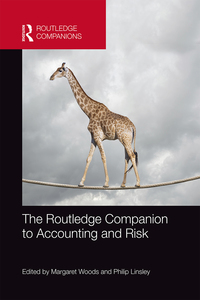
May, who is a resident of Utah, has recently been diagnosed with a rare form of cancer. The doctors have told her that she will die in only 3 to 4 months from today and have advised her to get her affairs in order. May is single and has 2 children, Joey and Heather. Joey is age 35 and works in California as a well-respected CFO of a substantial company where he expects to continue making at least 3 million per year in salary for the foreseeable future (causing him to be in a 20% federal tax bracket and 10% state tax bracket for all long term capital gain income). Heather is 30 years old and recently accepted a position as the Utah manager of a charitable organization where she expects to earn $80,000 per year for the indefinite future (causing Heather to be in a 15% federal tax bracket and a 5% state tax bracket for all of her long-term capital gain income). May has made no prior reportable gifts, lives in a rented apartment and no longer drives a car. Her only asset having any significant value is the 750,000 shares of stock she owns in a successful family business. The current fair market value of the stock is $200 per share and May's basis in the stock is $1.00 per share. May insists on dividing her ownership interest in exactly equal shares between her 2 children. All other shares ofm stock in the family business are owned by May's sister, Cait. The shares are subject to an buy-sell agreement which allows Cait to acquire the stock at a price of $210 per share following May's death. Cait has already provided written notice to May that she will exercise her right to acquire all of May's stock for a cash payment of S210 per share for all shares still held in May's name on the day following May's death. May seeks your advice as to whether she should gift her stock to her two children (equally) while she is still alive or waits and let the two children inherit the stock (equally) after May's death. May has indicated a concern over her gift taxes, her estate taxes, stock basis and the capital gains tax her children will pay at the time the buy-sell agreement is exercised. Assume the lifetime gift and estate tax exemption as of the date of May's death will be $12.06 million and the applicable gift and estate tax rate is 40%. Also, assume Utah has no state-level gift tax or estate tax. (a) If May elects to let the children inherit the stock, which at the time of May's death will be valued at $210 per share, how much federal estate tax will May be required to pay and how many shares will her estate need to sell in order to pay the federal estate tax? May, who is a resident of Utah, has recently been diagnosed with a rare form of cancer. The doctors have told her that she will die in only 3 to 4 months from today and have advised her to get her affairs in order. May is single and has 2 children, Joey and Heather. Joey is age 35 and works in California as a well-respected CFO of a substantial company where he expects to continue making at least 3 million per year in salary for the foreseeable future (causing him to be in a 20% federal tax bracket and 10% state tax bracket for all long term capital gain income). Heather is 30 years old and recently accepted a position as the Utah manager of a charitable organization where she expects to earn $80,000 per year for the indefinite future (causing Heather to be in a 15% federal tax bracket and a 5% state tax bracket for all of her long-term capital gain income). May has made no prior reportable gifts, lives in a rented apartment and no longer drives a car. Her only asset having any significant value is the 750,000 shares of stock she owns in a successful family business. The current fair market value of the stock is $200 per share and May's basis in the stock is $1.00 per share. May insists on dividing her ownership interest in exactly equal shares between her 2 children. All other shares ofm stock in the family business are owned by May's sister, Cait. The shares are subject to an buy-sell agreement which allows Cait to acquire the stock at a price of $210 per share following May's death. Cait has already provided written notice to May that she will exercise her right to acquire all of May's stock for a cash payment of S210 per share for all shares still held in May's name on the day following May's death. May seeks your advice as to whether she should gift her stock to her two children (equally) while she is still alive or waits and let the two children inherit the stock (equally) after May's death. May has indicated a concern over her gift taxes, her estate taxes, stock basis and the capital gains tax her children will pay at the time the buy-sell agreement is exercised. Assume the lifetime gift and estate tax exemption as of the date of May's death will be $12.06 million and the applicable gift and estate tax rate is 40%. Also, assume Utah has no state-level gift tax or estate tax. (a) If May elects to let the children inherit the stock, which at the time of May's death will be valued at $210 per share, how much federal estate tax will May be required to pay and how many shares will her estate need to sell in order to pay the federal estate tax







